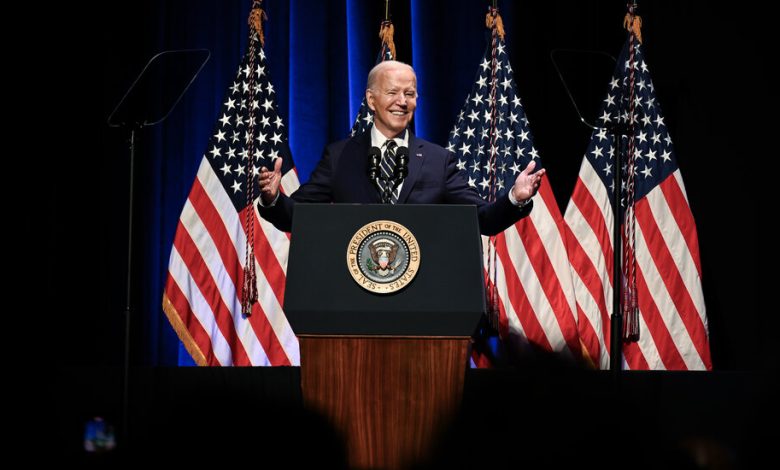Biden Loves to Tell Tall Tales. We Cut Them Down to Size.

In President Biden’s telling, he was a teenage civil rights activist, a former trucker, the first in his family to go college and the nephew of a cannibalism victim.
All of these claims stretch the truth or are downright false. But Mr. Biden persists in telling personal tales with rhetorical flourishes and factual liberty when he works a room or regales an audience. They are a way to connect with voters, emphasize his “middle-class Joe” persona and charm his audience.
Despite Mr. Biden’s penchant for exaggerating details when recounting episodes from his life, these autobiographical embellishments differ in scale and significance from the stream of lies about a stolen election peddled by his opponent, former President Donald J. Trump.
A White House spokesman, Andrew Bates, said that Mr. Biden had “brought honesty and integrity back to the White House” and that he shared life experiences that had shaped his outlook.
Here are some of the president’s most repeated yarns.
Connecting with his audience through hyperbole
What Was Said
“In our last debate, when I was 29 years old, the first question he was asked at the debate was, ‘Do you have any regrets, Senator Boggs?’ And he said, ‘No.’ Then we came to the very end of the debate, where I spoke and then he was to conclude. He stood up, and he said, ‘You know, I was asked if I had any regrets. I said no, but I have one: Had Joe Biden gone to the Naval Academy when I appointed him, he’d still have seven months left on and wouldn’t be able to run.’”
— in a May commencement speech at West Point Military Academy
Mr. Biden has repeatedly recounted this tale to graduating cadets at various military academies and to families of service members: In high school in the 1960s, he had been nominated to attend the United States Naval Academy by Senator J. Caleb Boggs of Delaware, his Republican opponent in his first Senate race. Mr. Boggs, Mr. Biden sometimes adds, later lamented that Mr. Biden had declined to accept the nomination in a 1972 debate. It is an anecdote that dates as far back as 2010, when Mr. Biden said in a speech that Mr. Boggs had “considered” him for the academy.